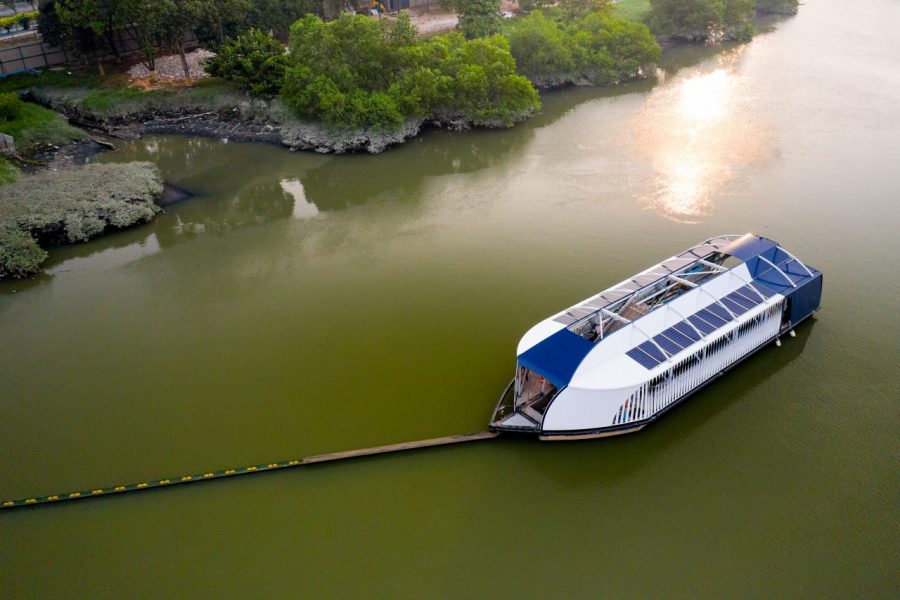The Ocean Cleanup Saves the Seas
November 1, 2019
The Ocean Cleanup is a nonprofit organization founded in 2013. The organization’s goal is to get rid of plastics and pollutants in the oceans. They aim to clean 90% of ocean pollution by developing advanced technology to eliminate the massive amounts of garbage that is damaging marine life.
On October 26th, they unveiled the Interceptor in Rotterdam, Netherlands, which began development in 2015. The Interceptor is a floating barrier that is powered by solar panels and uses a conveyor belt to separate waste from water, which gets deposited between six containers within the machine. When the containers are almost full, the Interceptor sends a text to local operators to come and collect the waste.
It can collect up to 50,000 kilograms of trash from a river per day and can go up to 100,000 kilograms “under optimized conditions.” The plastic they collect with the Interceptor will be created and turned in to something that won’t go back into the ocean, but rather become durable products. By 2025, they plan to tackle 1,000 of the most polluted rivers that are responsible for about 80% of ocean plastic pollution. “To truly rid the oceans of plastic, we need to both clean up the legacy and close the tap, preventing more plastic from reaching the oceans in the first place. Combining our ocean cleanup technology with the Interceptor, the solutions now exist to address both sides of the equation,” said Boyan Slat, Founder and CEO of The Ocean Cleanup.
As of now, two Interceptors are placed in Klang, Malaysia and Jakarta, Indonesia. Others are being deployed in Mekong Delta in Vietnam and Santo Domingo in the Dominican Republic. Soon after, Thailand and Los Angeles County will receive them. “Deploying Interceptors is even cheaper than deploying nothing at all,” Slat said “This means that every day countries are not investing in intercepting plastic in rivers they are losing money. To clean or not to clean? That is no longer a question.”


